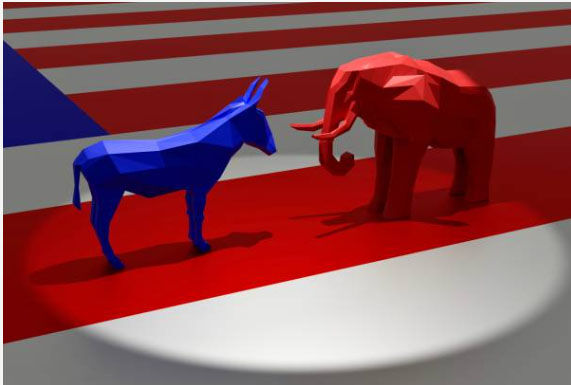Two cheers for the ‘One Big Beautiful Bill’ | SLOAN
As I write this, word has percolated out that the U.S. House of Representatives has passed President Donald Trump’s signature spending initiative, the “One Big Beautiful Bill.” That name conveys a certain sense of unseriousness, which is perhaps fitting given the lack of seriousness devoted to the issue of entitlement reform. Still, after the linguistic injury done by naming a bill that increases government spending by more than $1 trillion “The Inflation Reduction Act”, it would seem there are no rules left regulating the taxonomy of federal legislation, so that’s as good a name for it as any.
Its passage by President Trump’s arbitrary goal date was far from inevitable. The Fourth of July was not any sort of hard, statutory deadline; the 2017 tax cuts, most of which the OBBB will finally make permanent, do not expire until December, and the U.S. will not crack its skull on the debt ceiling until August, so there was still plenty of time for Congressman So-And-So to press the case for goring (or preventing the goring) of whichever particular ox resonates best with the good voters of the Best Congressional District in the nation.
Nevertheless, the durable leadership of Speaker Mike Johnson — buttressed by the considerable personality of the president — held, and the bill passed. This is, on balance, a good thing.
Which is not to say the OBBB is a flawless work of economic art. It is not. As I wrote in this space a few weeks back, the bill has some major flaws, the principle one being it falls lamentably short of addressing the elephant — no, the giant asteroid — in the room, entitlement spending. Yes, it nibbles at the edges of Medicaid, but the modest changes the bill makes to that enormous program are not the sort that will fundamentally alter the fiscally suicidal path the nation is on. For all of the bluster and caterwauling on the left about the how the Medicaid “cuts” will transform America into a dystopic scene from a Dickens novel or a Hieronymus Bosch painting, that is far from the case.
Stay up to speed: Sign up for daily opinion in your inbox Monday-Friday
To begin with, to call the Medicaid reforms “cuts” is possible only in the phantasmagorical world of Washington D.C.; the CBO — even the CBO — admits under the Senate version of the bill Medicaid spending will continue to grow by roughly 2% per year, amounting to $200 billion over the next decade. Slowing the unsustainable rate of Medicaid growth is laudable, but is hardly a cut.
And those 7.8 million who the CBO said will lose health insurance? Well, the CBO did a little mea culpa and broke down the figures — 4.8 million will be those who don’t comply with the requirement for able-bodied adults without children (or with older children) to work part time, volunteer, or go to school to qualify. This flies in the face of the well-worn liberal talking point that most people on Medicaid are already working anyway, and that this is a giant GOP non sequitur. The bill’s opponents are trying to have it both ways; either 4.8 million recipients are not meeting reasonable work requirements, or the bill will not deprive that many from the entitlement. Both cannot be true.
Of the rest of the 7.8 million number, the CBO says that 1.4 million are illegal immigrants, and the balance (1.6 million) have access to other forms of subsidized health care.
As for the CBO’s prediction of the bill generating a $3.3 trillion deficit, that is another puzzling little bit of circumlocutive Washington math, which takes as its baseline a fantastical future where a $4.5 trillion tax increase took hold. If the office were to score the budget as they should — against current policy as the — then voila! The bill saves $500 billion over the next 10 years.
There is indeed much to lament about the OBBB — it still spends far too much, contains far too many tax complications, distortions and hand-outs, and falls short of the substantive entitlement reform we will need to contend with sooner or later — but it does prevent a $4.5 million tax increase that would grind the economy to a halt, makes a modest effort at slowing the rate of Medicaid spending, and directs needed resources to the things government does need to be doing — including $150 billion for defense and $1.25 billion for air traffic control modernization. The House Republicans were correct to vote for it — perhaps not accompanied with the triumphant cheers sure to emanate from the White House, but with a more somber mien that comes from the realization this is the best that could be done under the circumstances.
Kelly Sloan is a political and public affairs consultant and a recovering journalist based in Denver.












